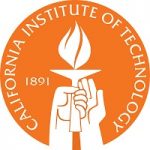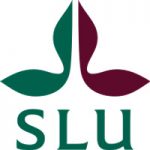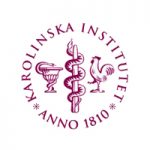项目介绍
Aims and Scope of the Graduate Program
Graduate students in biology come with very diverse undergraduate preparation—majors in physics, chemistry, mathematics, or psychology, as well as in biology and its various branches. The aims of the graduate program are to provide, for each student, individual depth of experience and competence in a particular chosen major specialty; perception of the nature and logic of biology as a whole; sufficient strength in basic science to allow continued self-education after formal training has been completed and thus to keep in the forefront of changing fields; and the motivation to serve his or her field productively through a long career.
In accordance with these aims, the graduate study program in biology includes the following parts: (a) the major program, which is to provide the student with early and intense original research experience in a self-selected subject of biology, supplemented with advanced course work and independent study in this subject; and (b) a program of course work designed to provide well-rounded and integrated training in biology and the appropriate basic sciences, which is adjusted to special interests and needs. An individual program will be recommended to each student in a meeting with the student’s advisory committee (see below). The Division of Biology and Biological Engineering does not encourage applications from students who have pursued undergraduate study in biology at the Institute, because the broader perspective to be gained from graduate study in a different setting is considered to be essential for the full development of each student’s potential. Exceptions to this policy may be considered by the faculty of the division if there are circumstances that indicate that it would be in the best interests of a student to pursue graduate study at the Institute.
Bi Admission
Applicants are expected to meet the following minimal requirements: mathematics through calculus, general physics, organic chemistry, physical chemistry (or the equivalent), and elementary biology. Students with deficient preparation in one or more of these categories may be admitted but required to remedy their deficiencies in the first years of graduate training, with no graduate credit being granted for such remedial study. This will usually involve taking courses in the categories in which the student has deficiencies. In certain instances, however, deficiencies may be corrected by examinations following independent or supervised study apart from formal courses. Furthermore, the program in biology is diverse, and in particular fields such as psychobiology and experimental psychology, or in interdisciplinary programs, other kinds of undergraduate preparation may be substituted for the general requirements listed above. When feasible, visits to the campus for personal interviews will be arranged before a final decision for admission is made. The GRE tests (general and advanced subject) are not required and scores will not be considered for admission.
Bi Degree of Doctor of Philosophy
Major Subjects of Specialization
A student may pursue major work leading to the doctoral degree in any of the following subjects: biophysics, cellular biology, developmental biology, genetics, immunology, microbiology, molecular biology and biochemistry, and systems biology. At graduation, a student may choose whether the degree is to be awarded in biology or in the selected major subject. Students who choose to work in Neurobiology may also qualify for a Ph.D. in Biology but are encouraged to enroll in the Neurobiology option.Initial Advisory Meeting
At the start of the first year of study, incoming students meet with the option representative or faculty member(s) specified by the option representative. The purpose of this meeting is to assist the student in organizing laboratory rotations, and to discuss what additional course work is desirable in light of the student’s past record.Rotations
The major initial responsibility of each student is to explore the various research possibilities available at Caltech before settling into a laboratory for their thesis research. Students are free to rotate in any laboratory at Caltech, not just those in the Division of Biology and Biological Engineering. First-year students should carry out a minimum of two laboratory rotations; three rotations are recommended. It is generally expected that rotations will last a full academic quarter; however, exceptions can be granted with the advance permission of the professor. Choice of laboratory should be made by the end of June of the first year except in extraordinary circumstances. Any exception should be discussed with the option representative.Formal Classes
During the first year of graduate studies, students are required to take Responsible Conduct of Research (Bi 252) and at least two courses from the series (Bi 250 abcd) that covers the breadth of fields represented in biology at Caltech. During each year that they are matriculated in the Ph.D. program, students are required to take Bi 251 abc (Biolunch). Students will be required to present their thesis research in Biolunch during their second and fourth years of study. In addition to these fixed requirements, during their time at Caltech students must take three additional 100-series or 200-series courses (9 or more units each; grade of B or higher in each course), at least one of which must focus on mathematical or statistical methods relevant to biology.Teaching
All students are to serve as teaching assistants for one quarter per year they are in residence, up through the third year.Admission to Candidacy
During winter quarter of the second year, a student is to set up a thesis proposal examining committee and prepare a proposal focused on the research project that they expect to pursue for their thesis research. The proposal is defended by the student in an oral presentation in front of the thesis proposal examining committee by the end of June. (Although it is anticipated that this exam will be completed by June of the second year, it can be delayed until August of the third year if the option representative agrees.) The examining committee comprises four faculty members, at least three of whom should hold full or joint professorial appointments in the Division of Biology and Biological Engineering. One of the members of the committee is appointed as chair. The chair of the thesis examining committee must be a Caltech faculty member other than the student’s adviser. The adviser can, but need not be, a member of the examining committee. The members of the thesis proposal examining committee must certify passage of this exam. In the event that there is inadequate evidence of the capacity to do research, the student may be allowed to petition to re-take the oral exam at a later time. However, in cases where the committee deems it unlikely that the student will be able to pass a subsequent attempt, the student may be advised to leave the program. In any event, a student cannot remain in the program beyond August of the third year without having successfully completed the requirements for admission to candidacy, except in extraordinary circumstances and with the approval of the option representative and the dean of graduate studies.Thesis Advisory Committee Meetings
Once a student has been formally admitted to candidacy, they are to pick a Thesis Advisory Committee (TAC). This committee is often the same as the thesis proposal exam committee, but that need not be the case. The thesis adviser must be a member of the TAC. The TAC typically has four members. At least three must be professorial faculty who hold a full or joint appointment in the Division of Biology and Biological Engineering. It is expected that students who have been admitted to candidacy will meet with the TAC once a year for the remainder of their time at Caltech. Students who fail to meet with their TAC in any one year may be deemed to not be maintaining satisfactory progress toward the Ph.D. degree and will be prevented from registering for the subsequent academic year.Maintaining Satisfactory Progress
It is the policy of the biology option that a graduate student who is making satisfactory progress toward a Ph.D. degree can expect to continue as a registered student with full financial support. To be deemed as making satisfactory progress, a student is expected to fulfill the expectations listed below. In the event that satisfactory progress is not being made, a student can petition to receive the M.S. degree, for which they must have successfully completed one full year of graduate study. Requirements for satisfactory progress include:
- Completion of the first-year course requirements during the first year.
- Joining a laboratory in which a student will perform thesis research before the end of the first year in residence.
- Passing the qualifying examination and completing admission to candidacy before the start of the fourth year in residence.
- Holding a Thesis Advisory Committee meeting in each subsequent year of studies, and having the thesis committee verify that satisfactory progress is being made.
- Serving as a teaching assistant for one quarter of each academic year spent in residence through third year.
- Completing Ph.D. studies by the end of the sixth year
In the event that the student, option representative, and adviser are in agreement, it is possible to make exceptions to the above guidelines and remain in good standing. Extension of thesis work beyond twenty-four terms requires that the student petition the dean of graduate studies for permission to register. Extensions beyond the seventh year will be allowed only in unusual circumstances. Once a student has passed admission to candidacy, the responsibility for assessing satisfactory progress lies largely with the student’s Thesis Advisory Committee. If a majority of the committee deems that a student is not making satisfactory progress, the student is at risk of being removed from the program at any time at the discretion of the option representative.
Requirements for the Ph.D. thesis and examination are determined by the Ph.D. examination committee that is appointed by the dean of graduate studies for each degree candidate. This committee is usually the same as the Thesis Advisory Committee, but this need not be the case. The composition of the committee must be approved by the option representative. The committee usually has four members. At least three must be professorial faculty who hold a full or joint appointment in the Division of Biology and Biological Engineering.
The thesis and associated publications are expected to demonstrate that the student has learned how to conceive, plan, and execute experimental and/or theoretical work that reveals new biological information. In addition, it must reveal a deep, broad, and rigorous understanding of the area of research to which the thesis is relevant. Two weeks after copies of the thesis are provided to the examining committee, chairman, and option representative, the candidate collects the copies and comments for correction. At this time, the date for the final examination is set at the discretion of the thesis advisor and the division chair. The final oral examination covers principally the work of the thesis, and according to Institute regulations must be held at least two weeks before the degree is conferred. A digital copy of the thesis is required of the graduate for the Institute library, including both PDF and original source files. Both should be deposited into CaltechTHESIS.
Caltech-Kaiser Permanente School of Medicine MD/PhD Program
There is a dual-degree program between Caltech and the Kaiser Permanente School of Medicine (KPSOM) for the granting of the M.D./ Ph.D. degree. Students receive their medical training at KPSOM, and perform their Ph.D. work with any member of the Caltech faculty.
Admission to this dual-degree program is made through the KPSOM M.D./Ph.D. process. The M.D. degree is awarded by KPSOM, and the Ph.D. is awarded by Caltech.
The dual-degree program is directed by Dr. Jose M. Barral, M.D., Ph.D. at KPSOM and Professor Paul Sternberg at Caltech. For more information, see medschool.kp.org/education/curriculum#dual-degrees.
Caltech-UCLA Medical Scientist Training Program (MSTP)
A joint program between Caltech and the UCLA Medical School has been established for the granting of the M.D./Ph.D. degree. Students do their preclinical and clinical work at UCLA, and their Ph.D. work with any member of the Caltech faculty, including the biology, chemistry, and engineering and applied science divisions.
Admission to this joint program is made through the usual UCLA MSTP process, checking a box indicating interest in the Caltech option. Students will be accepted into the joint program, funds permitting. The M.D. degree would be from UCLA and the Ph.D. would be awarded by Caltech.
The current Directors of the UCLA MSTP are Dr. Olujimi Ajijola and Dr. David Dawson, and Caltech Professor Mitch Guttman is the Associate Director. For more information, see mstp.healthsciences.ucla.edu.
Caltech-USC MD/PhD Program
A joint program between Caltech and the USC (Keck) Medical School has been established for the granting of the M.D./Ph.D. degree. Students do their preclinical and clinical work at USC, and their Ph.D. work with any member of the Caltech faculty.
Admission to this joint program is made through the usual USC process, checking a box indicating interest in the Caltech option. Students will be accepted into the joint program, funds permitting. The M.D. degree would be from USC and the Ph.D. would be awarded by Caltech.
The current Director of the USC M.D./Ph.D. program is Dr. David Hinton. The Director for Caltech is Professor Paul Sternberg. For more information, see keck.usc.edu/md-phd-program/.
Bi Subject Minor
A student majoring in any non-biology option of the Institute may, with the approval of the Division of Biology and Biological Engineering, elect a subject minor in any of the subjects listed above under major subjects of specialization. Requirements for such a minor are determined by the faculty committee designated for each subject. A minor program in biology is also available to students of other divisions. Such a program shall consist of 45 units of upper division course work in the Division of Biology and Biological Engineering, with each course passed with a grade of C or better. Approval of each program must be obtained from the biology graduate option representative. A student majoring in another division who elects a subject minor in biology may, if desired, arrange to have the minor designated as biology, rather than with the name of the specific minor subject.
联系方式
电话: (626) 395-6811相关项目推荐
KD博士实时收录全球顶尖院校的博士项目,总有一个项目等着你!






